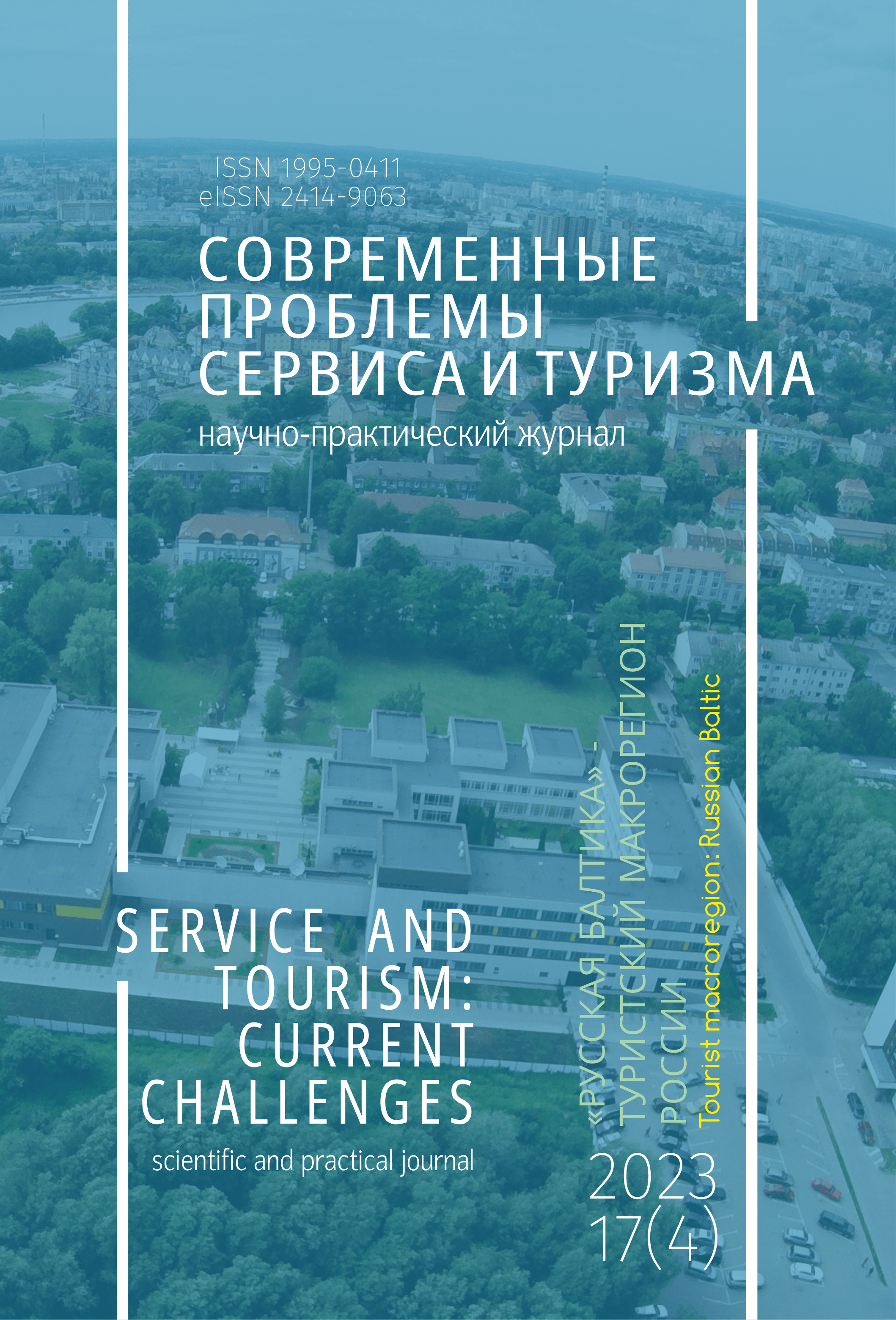Life-seeing as a new strategy of intercultural interaction in tourism
DOI:
https://doi.org/10.5281/zenodo.10382128Keywords:
intercultural communication, intercultural interaction, life-seeing, cosmopolitanism, training of tour guidesAbstract
The authors consider intercultural interaction in tourism from a historical point of view and from a modern perspective. The issues of tourism development from economic, sociological, psychological, cultural and linguistic positions are touched upon. In the article the authors emphasize the importance of tourism in the structure of interpretation of society, its influence on the quality of international contacts and building intercultural dialogue. Positive impact of tourism on many spheres of life is not automatic, but gradual. In the empirical part of the work, the authors demonstrate their work on creating a strategy of teaching intercultural dialogue and interaction based on introducing into the work of guides, tour guides stories about their experience with the help of stories to bring closer understanding of cultures by representatives of different countries. This strategy will also allow getting closer to the realities of life in the country, region visited by tourists. The article identifies six stages of implementation of this strategy for tour guides in the Kaliningrad region. The use of these stages will allow immersing tourists more deeply into the identity of the region. It is concluded that tourism can be developed much more intensively in the future by training tour guides in this strategy. If forms of tourism such as life-seeing tourism were encouraged, deep encounters and intensive exchanges could take place.
Downloads
References
Cohen, E. (1984). The sociology of tourism: approaches, issues, and findings. Annual Review of Sociology Research, 10, 373-392.
Dann, G., & Liebman Parrinello, G. (2009). The Sociology of Tourism: European Origins and Developments. Tourism Social Science, 12. Bingley: Emerald Group Publ. Limited.
Dworschak, H. (1994). Kulturdiskurse: ZumVerhältnis von Tourismus und indigener Kultur. Münster: Waxmann.
Freyer, W. (2011). Tourismus: Einführung in die Fremdenverkehrsökonomie. 9. Aufl. München: Oldenbourg Verlag.
Goffman, E. (1983). Wirallespielen Theater. München-Zürich.
Herdin, T. (2008). Welterbe Thailand: ZwischenTempel und T-Shirts. Welterbe-Tourismus, Kultur und Identitä. Luger, Wöhler und Saretzki et al. (Hrsg.), 263-280.
Hoopes, D. (1981). Intercultural Communication Concepts and the Psychology of Intercultural Experience. Multicultural Education: A Cross-Cultural Training Approach. Pusch (Hrsg.). Chicago: Intercultural Network, 9-38.
Kiefl, W., & Bachleitner, R. (2005). Lexikonzur Tourismussoziologie. Wien: Profil-Verlag.
Kösterke, A. (2000). Urlaubsreisen und interkulturelle Begegnung – eine Befragung junger Leute. Untersuchung zur Ansprechbarkeit von jungen Erwachsenen in Deutschland auf Aspekte von interkulturelle Begegnung im Urlaub. Ammerland: Studienkreis fürTourismus und Entwicklunge, V.
Kramer, D. (1993). Kulturanthropologie des Tourismus. Tourismus-psychologie und Tourismussoziologie: Ein Handbuch zur Tourismuswissenschaft. Hahn und Kagelmann (Hrsg.), 56-59.
Kutter, U. (1980). Zur Kulturgeschichte des Reises. Niedersächsische Staatsund Universitätsbibliothek Göttingen (Hrsg.). Niedersachsen in der Reiseliteraturvergangener Jahrhunderte: Ausstellungskataloge, 11-20.
Lauterbach, B. (2008). Tourismus: Eine Einführungaus Sicht der volkskundlichen Kulturwissenschaft. Würzburg: Königshausen& Neumann Verlag.
Lipp, W. (1988). Was heißteigentlich Kultur – und wozuistsie gut? Der Bürgerim Staat Magazin Kulturpolitik, 4, 239-245.
Lüem, T. (1985). Soziokulturelle Auswirkungen des Tourismus in Entwicklungsländern: Ein Beitragzur Problematik des Vergleiches von touristischenImplikationen auf verschiedenartige Kulturräume der Dritten Welt. Dissertation. Zürich.
Luger, K., & Herdin, T. (2001). Der eroberteHorizont. Tourismus und interkulturelle Kommunikation. Aus Politik und Zeitgeschichte Magazin, 47, 6-19.
Their, K. (2010). Storytelling: Eine Methode für das Change-, Marken-, Qualitäts und Wissensma-nagement. 2. Auf. Berlin: Springer-Verlag.
Downloads
Published
How to Cite
Issue
Section
License
Copyright (c) 2023 Glotova, Zh. V., & Mutavchi, E. P.

This work is licensed under a Creative Commons Attribution-NonCommercial-ShareAlike 4.0 International License.














